|
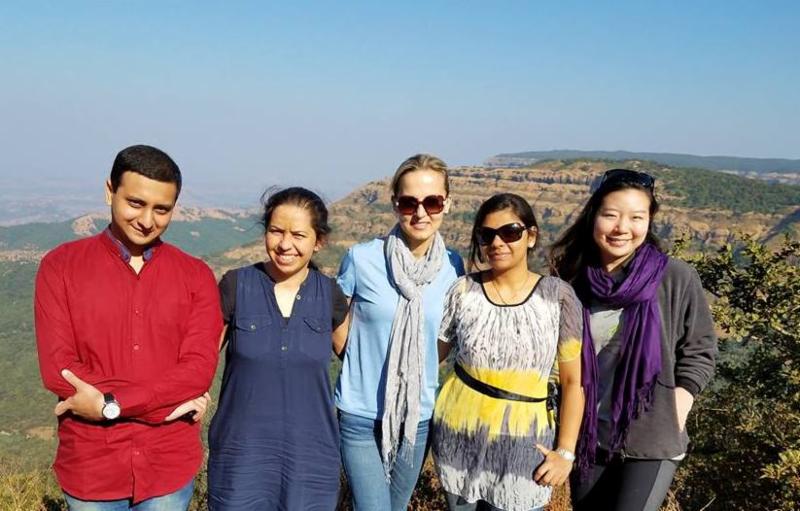 A few months ago, I was able to recharge my belief in our global community with our winter class of the Caux Scholars Program - Asia Plateau, India (CSP-AP). Twenty-one scholars from 17 countries became family and joined our alumni network. It is easy to feel disheartened right now with the turn towards nationalism in so many countries - a jingoism that is exclusive of others across artificial boundaries. But the scholars at Asia Plateau reaffirmed my faith and hope in humanity and helped me feel a stronger connection with the alumni of CSP.
We have yet to capitalize on the collective power of our alumni network. During a recent gathering, an alumna expressed her desire to have more informal gatherings during which we can have honest conversations about our frustrations and needs. We may need each other more than ever to reject racism, bigotry, and xenophobia. Through building stronger bonds, we can keep alive our experiences at Caux or AP, provide moral support to each other, connect each other with internships and jobs, and even develop projects as some alumni have done.
To take this forward, we have appointed 14 alumni regional officers who are trying to reconnect alumni in their regions, organize informal reunions, and set up a 'moral network' that responds to your needs. An alumni regional officer may have contacted you in the past few weeks. Please respond to him/her. If you have not been contacted, please send a message to me at
cauxscholars@iofc.org
Come to Caux July 23-26 to learn and share innovative tools for peacebuilding! Seven CSP alumni are working together to run the Towards an Inclusive Peace (TIP) forum at the Caux Palace this summer. Heading the team are Eliana Jimeno and Johannes Langer (CSP '12). This forum is the first of its kind run by CSP alumni and they need you to come and share your expertise and experience! Their invitation is in this newsletter (right column) and more information is on the
Caux website.
Changes are at hand regarding the newsletter. If you have any ideas on what to cover and the best format, please contact us!
Stay connected. Thank you for being a part of our CSP family.
Sincerely,
Jitka
Caux Scholars Program Director
|
|
From the Academic Director
|
|
Building community through restorative justice
Carl Stauffer, PhD, Academic Director of the Caux Scholars Program, writes:
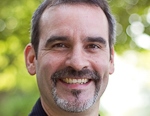 There is considerable dis-ease around our political landscape in the United States at this time. The emotions and rhetoric around clashing political ideologies are stirring a great deal of energy in the public sector no matter what perspective you come from. Many actors in the fields of justice and peacebuilding are asking, what should we do? My response is simple, but not easy - we must continue to do what we have always done with more urgency and relevance than ever before. We must nurture good relationships, strengthen community, and build responsive organizational structures that bolster social justice for the common good no matter who inhabits the White House.
For the past three decades my focus in academic and professional application has been on "restorative justice" a burgeoning field of study, and dare I say a "social movement" that is concerned about moving away from a punishment-based justice to a relational, accountability-based justice. From its humble beginnings in the 1970s as a court diversion program in Canada and the US, Restorative Justice is now making its mark globally and exceeding the confines of the criminal justice system and offering itself as a tool for dealing with social violence, community building and institutional change. Beyond the impact of Restorative Justice as a transformative process for individual victims and offenders of crime, many communities are now discovering the power of Restorative Justice to support community building and organizing. Restorative Justice provides the values and practices that inform, mobilize and sustain community development work, namely 1) encounter, 2) amends, 3) reintegration and 4) inclusion. Conferencing circles, one of the key Restorative Justice processes being utilized today are enabling communities to engage in deeper listening, truth-telling, dialogue, decision-making, conflict transformation, accountability, healing and reconciliation in new ways.
Encounter: Restorative Justice, if applied with wisdom and diligence has a collective impact on the whole community. It integrates multiple elements of bonding (intra-group), bridging (inter-group) and linking (inter-networks) of social capital. Restorative Justice practices are aimed at facilitating solidarity and enhancing good communication, capacitating constructive conflict management and transformation skill-sets, nurturing participatory community organizing and "asset-based" community development, and ultimately to encourage community self-governance and self-regulation in the internal workings of collective life. In Chicago, where communities have organized around five Restorative Justice "hubs" that promote youth justice, empowerment and leadership, former gang members are finding a way out of the gangs through participation in regular public community circles. These dialogue "circle" spaces are helping communities engage in life justice issues that concern them the most and find support to organize and take action for social change in their local contexts.
Amends: Restorative Justice as a framework provides a nonviolent justice alternative to the dominant Criminal Justice system which is predicated on state-sanctioned violence. This state-sanctioned violence whether it claims moral legitimacy or not is by its very nature regenerative in its transmission of societal cycles of structural violence. As a result, we see structural violence manifesting in many societal structures such as schools, courts, prisons, business, and government. It's time to break this cycle. Restorative Justice practice is finding exponential growth as a form of violence prevention in K-12 schools across North America. As such, it is becoming a powerful frame for creating strong learning communities, responding to school discipline issues and interrupting the 'school-to-prison' pipeline and its devastating effects of racial disproportionality and mass incarceration.
Reintegration: Restorative Justice understands that we as human beings are interdependent on each other - that we cease to be human if we are not connected to each other. Thus, restorative justice is not only a proactive approach to prevent violence and harm, it can also be used to heal and reinsert those who have been pushed out or removed from the community (school suspensions/expulsions, incarceration, forced immigration, family separation and the like). One of the important goals of restorative justice is to finds ways in which all persons who belong to a community can become engaged and productive members of society again.
Inclusion: Restorative Justice is subversive. It is a game-changer. It changes the rules of the justice game that reinforce the status quo. It disarms structures of hierarchy, rank and prejudice by embodying relationships of equity, full participation and consensus decision-making processes; thereby putting the justice process back into the hands of the citizenry. Restorative Justice implants a future vision for a genuine, sustainable "people's justice" in the fullest sense of the concept. In Harrisonburg, Virginia, we have formed a Restorative Justice Coalition that involves the police, K-12 schools, universities, criminal justice representatives, a local community mediation center, community organizing groups, immigrant organizations and faith-based networks. Together, this coalition aims to bring restorative justice practices to as many sectors as possible in the community with the long-term goal of making Harrisonburg a "Restorative City."
Read more
|
|
Alumni voices from the field
|
|
Addressing the root causes of conflict
Myriam Aziz (CSP 2014), from Lebanon, is a Fulbright Scholar and MA Candidate at the Center for Justice and Peacebuilding, Eastern Mennonite University.
"The master's tools will never dismantle the master's house"- Audre Lorde
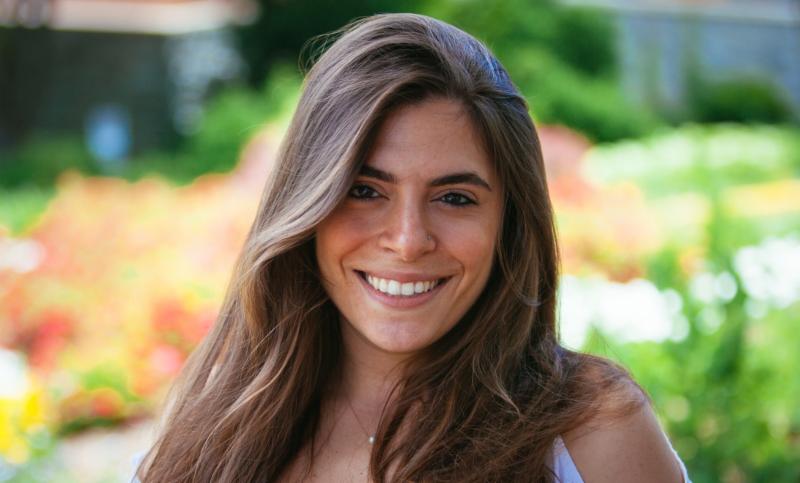 My time at the Center for Justice and Peacebuilding (CJP) at Eastern Mennonite University exposed me to decolonization theory specifically in development and aid. At the heart of my research interest, was the question about the correlation between global capitalism and the reproduction of inequalities in the world, all in the name of development.
Why has global capitalism, under the mandate of development and aid, failed to substantially decrease poverty and has perpetuated more inequalities? While I continue to research and attempt to formulate comprehensive answers, I generally believe it is due to the hegemony imposed by scores of states along with multilateral institutions and NGOs. For the most part, this hegemony does not include a conflict sensitive approach nor does it allow "beneficiaries of development" to write their own history and future.
With this in mind, I started an internship with the Lebanese Mission to the U.N. headquarters, in New York over the 2016 summer. I attended all sorts of meetings on a plethora of topics. The general rhetoric was not one of conflict transformation or conflict sensitivity. In fact, the quotidian hegemony previously mentioned seemed to prevail: states and multilateral institutions alike were more concerned with the formulation of the Sustainable Development Goals (SDGs) than they were with the potential harms done while attempting to reach those goals.
Nonetheless, it was refreshing to attend a briefing on the Peacebuilding Commission (PBC). There stakeholders were focused on conducting systemic analyses, addressing root causes of conflict and inviting local actors, including normally marginalized groups, from diverse sectors to create their own post-conflict development plans. This conflict sensitive approach motivated me to approach the PBC chairman, Ambassador Macharia Kamau of Kenya. He concurred and reiterated the importance of adopting different approaches if we truly wanted different (better) outcomes.
Read more
|
|
The cost of downstream oil theft
Why be concerned with oil-poor countries trying to get a discount? In a study headed by Dr. Ian Ralby (CSP '01) research shows that corruption does affect development. It is important to note that, within the ten countries focused on in the report are reformist movements that need to be supported. The Guardian article gave this report some good coverage.
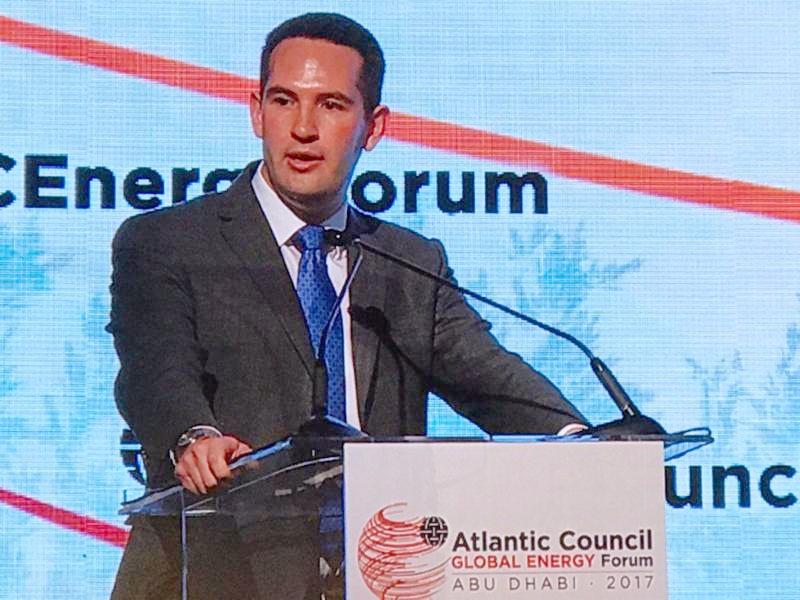 To the extent that oil theft is portrayed in the media, the stories might lead us to think it is a matter of the energy poor stealing from the rich to meet basic needs. But as Dr. Ian Ralby and his team at I.R. Consilium found in a major report for the Atlantic Council, though such a "Robin Hood" dynamic can exist, Downstream Oil Theft is more often a case of nefarious actors stealing from the rich, selling to the energy poor, and using the proceeds to finance far more sinister criminality such as terrorism, trafficking, and militancy. Fuel theft exploits the energy poor, destabilizes governments, and undermines international security.
Though downstream oil theft is one of the least examined forms of international crime, its global scale is staggering, as are its costs. It robbed Thailand of $700,000 dollars in revenues per day in 2011 alone, and drains Nigeria of 30% of its refined hydrocarbons. The billion-dollar Mexican market in stolen fuel is dominated by the drug cartels, some of which have perpetrated mass murders in areas under their sway. Every year, an estimated 2.7 million tons of fuel are smuggled into Turkey, costing an estimated $2.5 billion in revenues and financing ISIS and other extremist groups. Wherever an illicit discount can be had, downstream oil theft thrives-at tremendous fiscal and human cost.
Read more
|
|
Ending a generational cycle of abuse
Three years ago Asiya Mohammed (CSP 2006) left a career at the Foreign Ministry of Trinidad and Tobago to pursue her real passion: ending violence against women through financial empowerment. She writes:
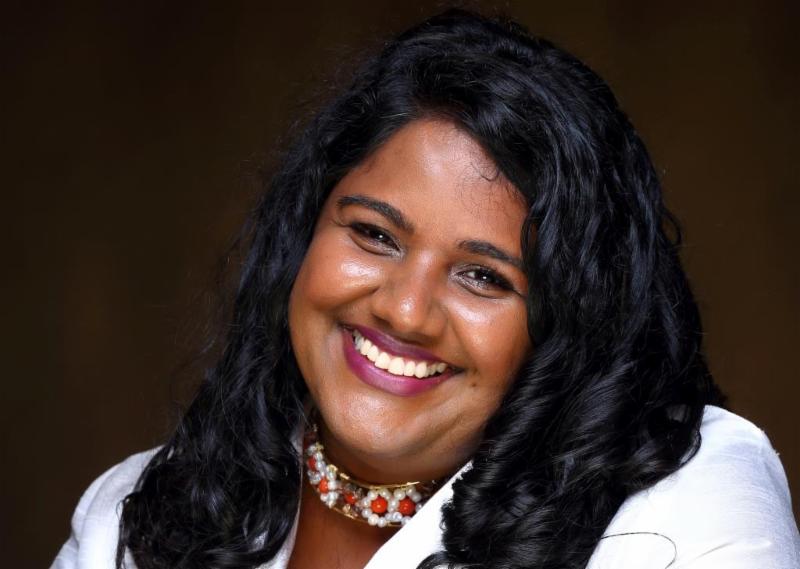 I launched
Conflict Women, a social enterprise which sells bespoke jewelry handcrafted by survivors of domestic and sexual violence. To date we have trained 40 survivors, and enrolled half that number in our award-winning
Butterfly Project, where they receive a monthly income for 1 year and 12 free trainings with tool kits. To successfully achieve our goals, we partnered with Government's Domestic Violence Hotline, 800-SAVE, safe houses and NGOs who support our work.
After earning an income for several months, survivors may choose to leave abusive relationships or seek couples' counselling, so we found ourselves expanding our services to include psycho-social and limited legal assistance. What started as an idea, has today put more than $200,000 into hands of survivors and taken several of them out of abusive situations, ending a generational cycle of abuse for the next generation.
Our original line of crochet butterfly jewelry has expanded and today we retail gold plated and silver plated jewelry at two branches of Trinidad and Tobago's luxury gift stores, Stechers Limited, Hotel Normandie, and Akimbo. To view and shop our latest line
please visit
The Hope Collection
.
Read more
|
|
Stirring up empathy
This article is based on Kathy Aquilina's notes from remarks made by Dr. Marc Gopin, the Director of the Center for World Religions, Diplomacy and Conflict Resolution (CRDC), the James H. Laue Professor at the School for Conflict Analysis and Resolution at George Mason University. Dr. Gopin has been on the faculty of The Caux Scholars Program.
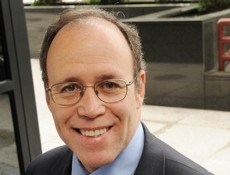 In 2003 King Abdallah wanted to entice business people to Jordan and so he invited the World Economic Forum to hold a session at the Dead Sea. Dr. Marc Gopin, of George Mason University, found himself invited as "entertainment." It was a chance to meet leaders from around the Middle East, many of them young business leaders, and talk about human rights. There he met a Syrian woman who spoke boldly about human rights. He was intrigued that she spoke so freely, and it turns out she was representing Bahrain.
Dr. Gopin was subsequently invited to Syria. He kept trying to find excuses not to go, but finally he did accept. As it was the beginning of the younger Assad's years in power and his government wanted to show a good face, things did go fairly well. Between 2003 and 2011 Gopin returned numerous times to Syria for interfaith conferences, the focus of which was less threatening to the regime than addressing human rights directly.
Early on there were still hopes that Assad would liberalize, but this was not to be. Gopin met with all sorts of people. He learned that bad people can indeed use you, but there is also the opportunity to offer them a way out. A kind of delicate dance developed with some of these leaders.
In the end, however, the devastation we see today began. Assad responded viciously to nonviolent demonstrations, which were inspired by the Arab Spring. Half the country -13 million were displaced; several hundred thousand tortured; and 500,000 dead, the moderate resistance to his regime assassinated.
Dr. Gopin has been reflecting on this tragic outcome, years in the making, with many of his friends dead. What are the options for engagement with a displaced people? What is left to be built upon? How does he interact as a person whose religion prioritizes the saving of human life? He draws on some lessons he learned while at Caux.
Marc wonders aloud to his students: Why do we keep ending up with rage, anger, fear and resistance? Isn't it better to ask people,"What do you want?" and listen to them?
Read more
|
|
We hope you enjoyed this issue of
Cauxmunique. Please share this newsletter with your friends and forward it to those you know have a passion for peacebuilding.
Thank you!
Kathy Aquilina
|
|
|
Please help us raise scholarship funds

Donate online or send checks
to our office payable to
Initiatives of Change
|
|
Reuniting in Caux for the Towards an Inclusive Peace forum 2017
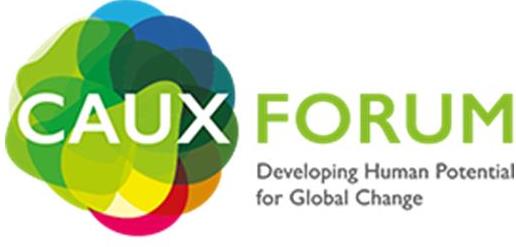
As activists and lifelong learners in the area of conflict transformation and peacebuilding, you are all invited to an inaugural forum
Towards an Inclusive Peace (TIP), from July 23-26
at the Caux Palace
This forum is the first of its kind run by former Caux Scholars. Not only the two co-coordinators but also five team members are alumni of the program! Therefore, we see
Towards an Inclusive Peace as an opportunity to reunite, bring your expertise on board, discuss innovative tools for peacebuilding, and reactivate the network of peacebuilders that Caux Scholars are around the world.
As Caux Scholars, we have experienced first-hand the role that active listening, open dialogue and the willingness to deconstruct our own prejudices plays in bridging differences and bringing people together. The Caux Scholars Program is the embodiment of these values. Values that coupled with your experience can turn into powerful peacebuilding tools.
You are probably aware that fear and misunderstanding create a fertile ground for extremist views to take root, often leading to different levels of extreme behavior, from becoming involved in divisive, polarizing political parties to acts of self and mass destruction. We believe that extremist narratives can be challenged, and eventually transformed into thoughts and attitudes conducive to peaceful co-existence, if we are all willing to put in our grain of sand.
If this resonates with you and your wish is to know how to better address these issues come to Towards an Inclusive Peace. This is not just another 'talkfest' gathering of armchair peacemakers and lengthy speeches, but a hands-on sharing and learning opportunity unlike any regular conference you have ever attended. TIP will be a transformative experience for you, personally, and hopefully in the future, for your national and local communities.
Your input, as well as your idealism will be greatly valued by all participants. Your own insights will be greatly enriched by exchanges with the diversity of participants, as you would remember from your own Caux experience. This, and the opportunity to slow down long enough to reflect deeply in surroundings of such stunning natural beauty, is key to the process of positive social change starting with individual change.
You will leave Caux not only with a greater understanding of peace as a living reality in the day-to-day lives of ordinary people but also with practical tools for creating and sustaining that peace.
We are looking forward to your responses.
Eliana Jimeno (CSP '12), Johannes Langer (CSP '12), and Susan Korah
|
|
Every little bit counts!
Help us raise funds for the alumni scholarship
Target figure:
$3800 scholarship
+ $1000 for travel
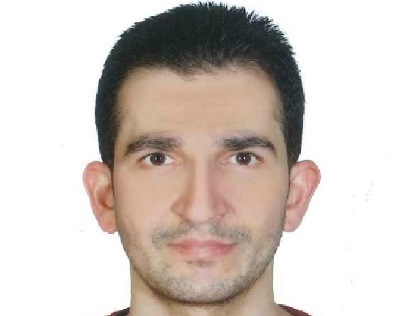 "The Caux Scholars Program taught me about values of love, purity, unselfishness and honesty. I witnessed what can be done if we let our inner peace go into larger circles (our families, friends, relatives and society). Peace starts from us, from our minds, thoughts and beliefs. It is not only an academic concept that we learn and then apply into reality; it is something attached to our morals, faiths and thinking. Day after day, I experienced the gift of God. Scholars and organizers of this program became one family which seeds were planted at Caux, but the tree is blossoming worldwide."
Ehsan Fteyih, Humanitarian Worker, Syria. Receiver of CSP 2016 Alumni Scholarship
Success stories like Ehsan's are a powerful reminder of the importance of providing platforms for young people to come together and equip themselves with the skills necessary to become agents of peaceful change in their communities around the globe.
For over two decades, the Caux Scholars Program has done just that, teaching students the importance of personal transformation leading to global change, the understanding of different perspectives in fighting for justice and equity, and the courage it takes to becoming a principled leader.
The CSP 2016 cohort was no different with the scholars hailing from Armenia, Bosnia, Brazil, Burundi, Egypt, Germany, Mexico, Nepal, Pakistan, Rwanda, Sierra Leone, Sri Lanka, Syria, UK, Ukraine and USA.
With each passing year, CSP continues to thrive and its greatest asset - CSP alumni, such as yourself - continue to do incredible work in their communities.
This year, for CSP 2017, we are once again looking to bring a group of twenty young people from diverse backgrounds to journey up the mountain to Caux in their quest toward building a peaceful world for us all. For many of these scholars, an obstacle to getting to Caux is finding the necessary financial means.
If each alumnus and alumna gives back to CSP the amount of just US $10, we can raise enough funds to enable a deserving scholar to attend CSP 2017.
Donations can be made by contacting
jitka.hromek-vaitla@iofc.org
or
donate online
using PayPal or a credit card.
Please consider giving back to a program that has given so much to each of us. Each dollar raised is a step closer to helping realize a young person's dream of becoming a positive changemaker.
Sincerely,
CSP 2017 Alumni Scholarship Committee
|
|
Official Opening
June 29-July 2, 2017
Ethical Leadership in Business
July 4-9, 2017
Just Governance for Human Security
July 11-15, 2017
Caux Dialogue on Land and Security
July 17-21, 2017
Addressing Europe's Unfinished Business
July 23-26, 2017
Towards an inclusive peace
July 29-August 4, 2017
Children as Actors for Transforming Society
|
The 2016 Caux Report is published online. Hard copies will be available from our office.
|
|
Caux Scholars
is a program of
Initiatives of Change (IofC)
A diverse global network with an 80-year track record of peacebuilding, conflict transformation and forging partnerships across divides of race, class, religion and politics.
Our vision
We inspire a vision of community where a commitment to reconciliation and justice transcends competing identities and interests.
Our mission
We equip leaders to build trust in diverse communities through a process of personal change, inclusive dialogue, healing historical conflict and teambuilding
Our focus
We connect core values with personal and public action with a focus on racial reconciliation, economic inclusion and interfaith understanding.
For more information
|
|
Follow-up Links
HIC on Facebook
|
|
|